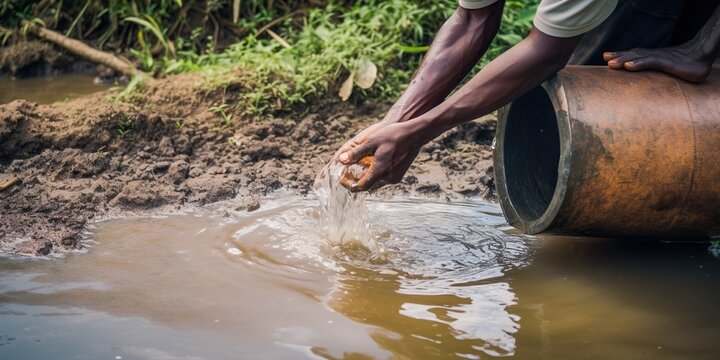Water for Peace and Prosperity
- September 18, 2024
- Posted by: Hub Admin
- Categories: Climatic Justice, Environmental Protection, Latest News & Events

By Pamela Udejimba
Water is more than just a basic necessity; it is the foundation of a healthy, prosperous, and peaceful society. In Nigeria and around the world, access to clean water drives economic growth, improves health, and fosters social harmony. However, without proper management, water can also become a source of conflict.
Water is vital for any economy, particularly in sectors like agriculture, which relies heavily on it for crop irrigation and livestock. In Nigeria, where agriculture employs a large portion of the population, reliable access to water can significantly boost productivity. With proper irrigation systems, farmers can grow crops even during dry seasons, improving food security and supporting livelihoods. Industries also, from manufacturing to energy production, require water for their operations. Projects like the Kano River Irrigation Project have shown how water can drive economic growth, particularly in rural areas where access to water can make all the difference.

Clean water is key to good health and when communities have access to clean water, they thrive. Healthy populations are more productive, contributing to economic development and societal well-being. When people have access to safe drinking water, the risk of waterborne diseases such as cholera, typhoid, and dysentery drops significantly. In Nigeria, programmes like the National Water, Sanitation, and Hygiene (WASH) initiative have helped improve access to clean water, especially in rural areas.
Water scarcity can be a source of conflict, especially in regions where resources are already limited. However, shared water resources can also be an opportunity for collaboration. The Niger River Basin is a good example of how Nigeria and her neighbouring countries can work together to manage water resources, fostering regional cooperation and peace.
Sustainable management of water resources is essential for ensuring peace and prosperity. Nigeria faces several challenges in this area, including pollution, overuse, and inadequate infrastructure. Addressing these issues requires a commitment to conservation and sustainable practices. Initiatives like the Clean Nigeria Campaign, which focuses on improving sanitation and reducing open defecation, are examples of steps in the right direction. On a global scale, international organisations like UN-Water help facilitate cooperation between countries, ensuring that water remains a resource for peace rather than conflict.
Now more than ever, it is crucial that we all take steps to protect and conserve our water resources. Individuals, communities, and policymakers alike must prioritise sustainable practices and ensure that water remains accessible for all. Monitoring water quality is an essential part of this process. By detecting pollution or depletion early, we can avoid future conflicts and ensure that water continues to support our economy and society.
Therefore, let us all remain committed to playing our part. Whether through individual efforts like conserving water at home or community projects aimed at improving water access, everyone has a role to play in protecting water as a resource.
